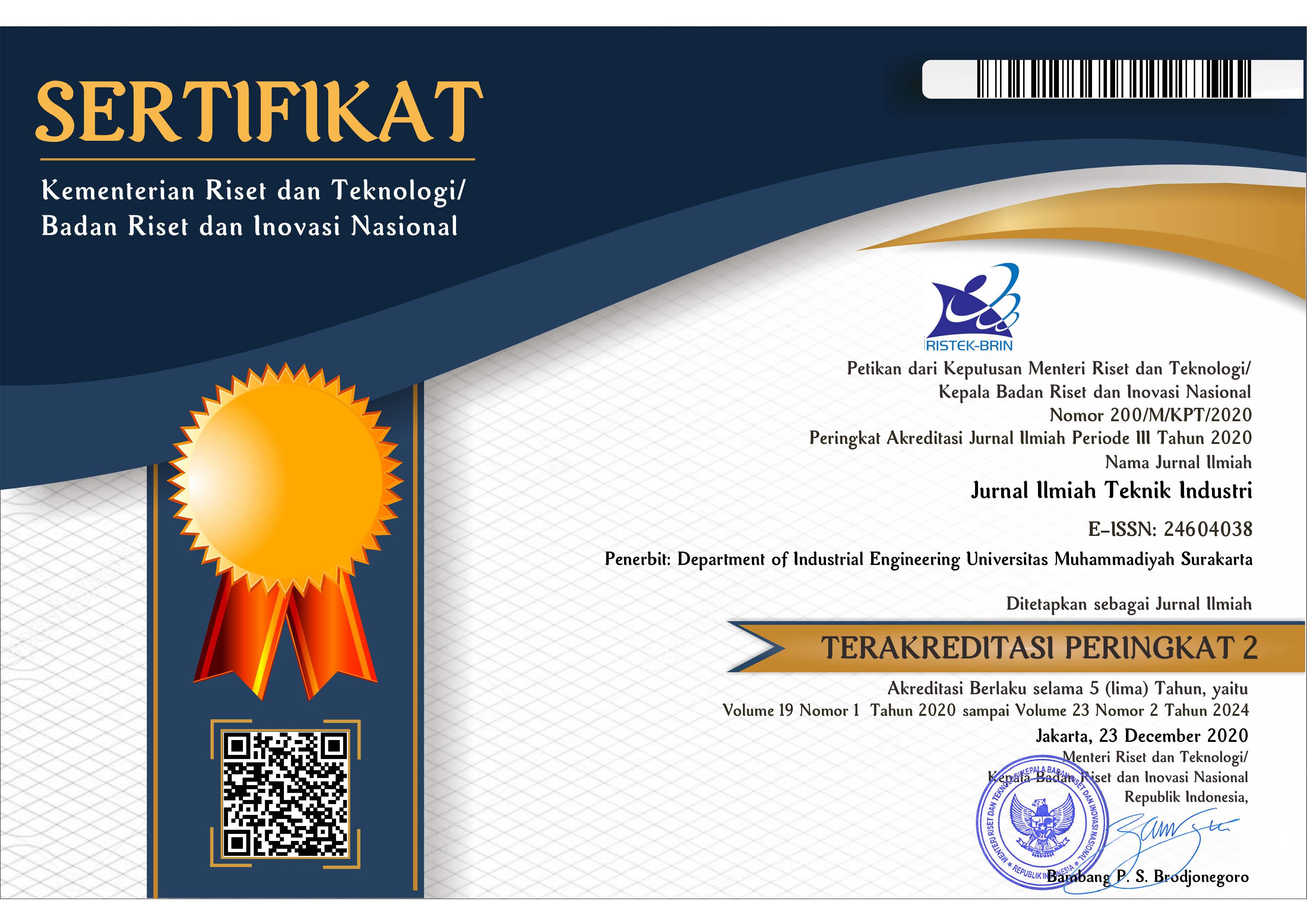Judgmental Forecasting Uses Agent-Based Modeling and Simulation to Minimize Risks and Losses in Decision-Making
DOI:
https://doi.org/10.23917/jiti.v23i02.4486Keywords:
agent-based modeling, decision making, economic order quantity, judgmental, simulationAbstract
Forecasting is widely used in many aspects of human life whether it is informal for personal use or formal in organizations or institutions. This study delves into the utilization of judgmental forecasting in determining the ideal number of orders to restock inventory to supply to the restaurant. Through modeling and simulation, this research aims to mitigate uncertainties, reduce risks, and prevent losses. By quantifying the owner's mood, this study comprehensively analyzes the total cost of calculations based on decision-making theories and the mood of the decision-maker. The research employs the NetLogo simulation tool, which is commonly utilized in creating agent-based models and simulations. After conducting five simulations with 1000 data points each, it was discovered that relying on mood for decision-making resulted in a higher total cost ranging from 0.44% to 45% compared to the theoretically calculated cost. Mood-based decision-making is generally riskier and incurs cost losses.
Downloads
Submitted
Accepted
Published
How to Cite
Issue
Section
License
Copyright (c) 2024 Jurnal Ilmiah Teknik Industri

This work is licensed under a Creative Commons Attribution 4.0 International License.











